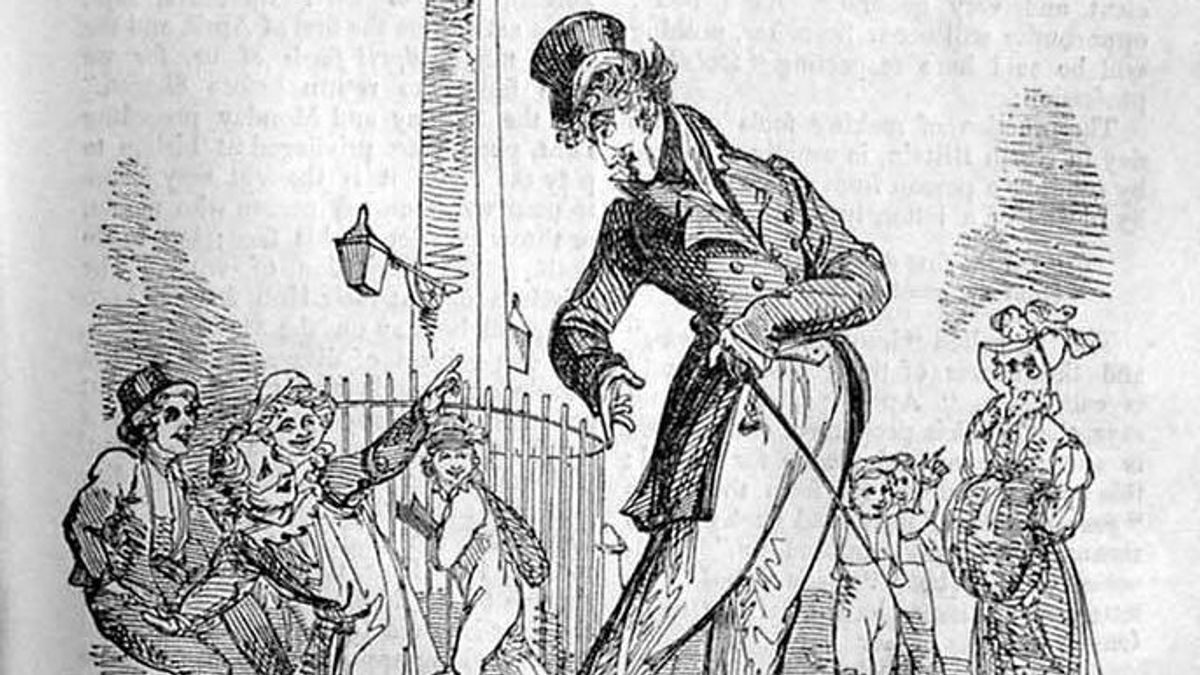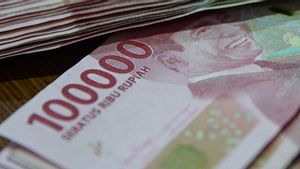JAKARTA - On April 1, 1700, British pranksters first popularized the existing tradition, April Mop or April Fool's Day. At that time, April Fools' Day was done by giving practical jokes to each other.
Although it has been celebrated for several centuries in various cultures, the history of early April Fools' Day is still a mystery. Some historians have speculated April Fools' Day originated in 1582.
At that time France switched from the Julian calendar to the Gregorian calendar at the instigation of the Council of Trent in 1563. The news was too late.
Or some of them don't even know that the start of the new year is January 1st. They continued to celebrate the new year during the last week of March to April 1, which became the subject of jokes and hoaxes.
Those jokes include sticking paper fish on other people's backs. A joke they call Poisson d'avril (April fish).
The paper fish represents a young fish who is "easily hooked" or a gullible person. Launching History, April Fools' Day originally spread throughout England during the 18th century.
In Scotland, this tradition is a two-day event, starting with "gowk hunting". Not literally bird hunting.
But people are on fake missions. On the second day, they give pranks, like sticking fake tails or sticking 'kick me' words on other people.
The development of the April Fool's Day joke
Historians also associate April Fool's Day with the Hilaria Festival, Latin for joy. The festival was celebrated in ancient Rome at the end of March by followers of the Cybele sect.
The Hilaria Festival involves people going undercover and taunting fellow citizens, even judges. The celebration is also said to be inspired by Egyptian legends about Isis, Osiris, and Seth.
As technology develops, the more advanced the pranks are. In 2000, Google pranked by launching its "MentalPlex" search technology which reads the user's mind to determine what the user wanted to search.
We don't need to type anymore, so Google tricks its users. Users are invited to peek intently at the animated rotating circle while projecting a mental image of their search query.
When you click the MentalPlex circle, search results for "April Fool's Day" appear along with a notification that "it's not clear whether your search is about money or monkeys".
A series of Google's April Fools
In 2005, Google launched another prank by announcing Google Gulp, a new line of "smart" drinks that come in four flavors: Glutamate Wine, Sugar-Free Radicals, Beta Carroty, and Sero-Tonic Water.
Google Gulp "is designed to maximize your browsing efficiency by making you smarter, and reducing your thirst".
The drink is claimed to be a limited release and only available "if you return the Gulp bottle cap to your local grocery store".
In 2014, Google's April Fool's Day prank was AutoAwesome for Resumes, a web tool that lets users tidy up their resumes with vibrant templates, emojis, and animations.
Users just need to upload their resume or CV to Google Drive and choose hundreds of preset AutoAwesome features and options. The program matches users with potential new jobs on Google based on their resumes.
* Read other information about Pop Culture or read other interesting writings from Yudhistira Mahabharata.
TODAY'S HISTORY Others
The English, Chinese, Japanese, Arabic, and French versions are automatically generated by the AI. So there may still be inaccuracies in translating, please always see Indonesian as our main language. (system supported by DigitalSiber.id)











